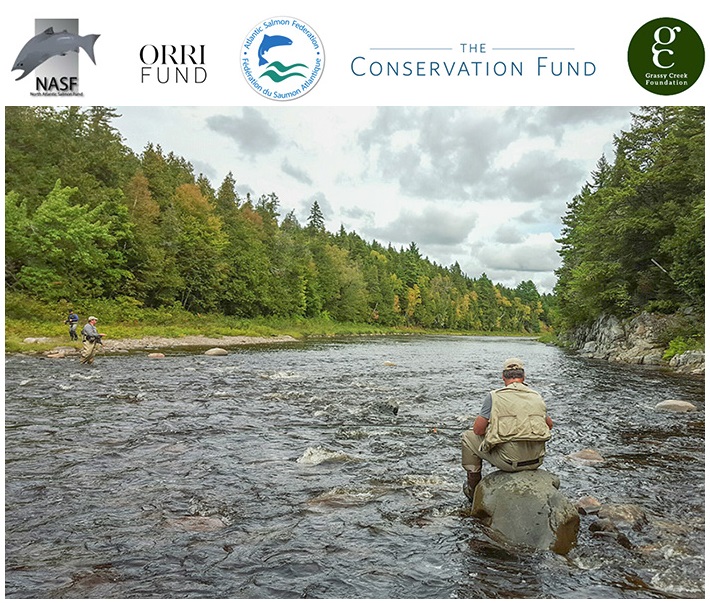
Approximately 60 representatives of over 30 NGOs, research institutions, and sustainable industry groups convened in Reykjavik this week to discuss the state of North Atlantic salmon populations and to strategize a course for supporting remaining stocks.
“These past two days saw many salmon advocates come together for the first time in one room. The collective expertise shared between them is incredible, as is their commitment to saving North Atlantic salmon,” stated Chad Pike, Chairman of NASF (US). “The need to work together on concrete issues such as aquaculture standards and public outreach is clear. We leave the Summit energized and ready to dive in.”
A key Arctic indicator species, North Atlantic salmon, faces numerous challenges to its continued survival, from rising sea temperatures and increasing predator populations, to fishermen’s nets and lice-ridden aquaculture farms.
Experts from across the North Atlantic Basin provided in-depth updates on these and other issues vital to the species survival. (See page 2 for speaker bios.) Attendees met in breakout sessions to further discuss topics such as country-level advocacy, High Seas buyouts, and regulatory advances in aquaculture. Two films were screened, “Lost at Sea” and “The Salmon Story,” and attendees toured a local land-based aquaculture facility.
“The Summit was hailed by attendees as a critical opportunity for dialogue and cooperation by NGOs and industry, alike. There were many lively and informative discussions after the panels,” said Fridleifur Gudmundsson, Chairman of NASF (Iceland). “Working together with international NGO´s and conservationists is the key to success in our fight to preserve the North Atlantic salmon. The aim is to have the Salmon Summit as an annual event that will grow and become a powerful forum,“ he said.
Existing NASF initiatives were also discussed, among them current negotiations for commercial conservation agreements with Greenland. Bill Taylor, President of ASF, stated “The Salmon Summit was a watershed moment for wild Atlantic salmon. The progress ASF and NASF are making towards a new Conservation Agreement with Greenland fishermen to exchange economic development incentives for their commercial salmon quotas represents the single best investment that can be made for salmon conservation.”
For more information contact:
Neville Crabbe, ASF Director of Communications
506-529-1033
ncrabbe@asf.ca
